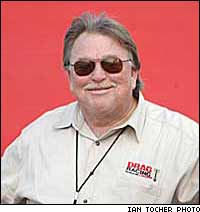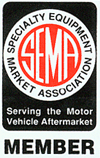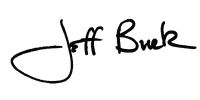|
|||||||||||||||||||||||||||||||||||||||||||||||||||||||||||||

It was Deja Vu all over again
11/13/06
 Photo by Ian Tocher |
Note: I wrote this blast Sunday (Nov. 12) morning before Alan Johnson and Tony Schumacher completed one of the most amazing comebacks in auto racing history, culminating with Alan Johnson once again demonstrating that he may be a certifiable genius when it comes to tuning a nitro burning car. This “Blast” is in no way meant to discredit that team’s magnificent performance and well deserved 4th NHRA World Championship. It is merely my observations and comments on what took place during Saturday night qualifying at Pomona. - JB
As I sat staring at my TV viewing the NHRA2day video replay of NHRA head starter Rick Stewart twice giving the throat-slashing gesture --universally known in all of auto racing as a sign that means turn-it-off, stop, quit -- and having it apparently ignored by one of the most experienced crew chiefs and drivers in the sport I was reminded of the famous Yogi Berra quote “It’s Déjà Vu all over again” and the oft used saying that goes something like, “Who are you going to believe, me or your lying eyes?”
Here we go again, what we all saw happen on TV just like with the Steve Johnson incident at Indy, evidently meant nothing to the officials. Tony Schumacher admitted he saw Stewart make the gesture. Stewart gave the signal not once but twice. Surely members of the Schumacher team other than the driver saw the starter step in front of the running fueler and make that universally recognized signal!
Alan Johnson was quoted in newspaper reports as saying he knew that there was oil under the tires, yet he apparently decided to ignore the starter’s instructions and send the car down the track anyway! The possibilities for a disaster resulting from that decision are mind boggling.
Thank the Racing Gods that nothing did happen. But what if Tony Schumacher’s car had gone out sixty feet, run over some oil, spun the tires, turned hard and drove into Doug Kalitta in the other lane? That is not a far-fetched possibility.
As I set watching the replay I couldn’t help wonder why Rick Stewart didn’t toggle the button on the starter box that activates the red-light in Schumacher’s lane if he really felt that Schumacher’s car shouldn’t have made a lap. Why did Stewart allow him to stage the car and give him the green if he thought the car should have been shutoff? I wondered what was going through his mind.
The fact that NHRA took no action immediately following the incident to either the driver or team is unfathomable. It is a repeat of the lack of leadership and decision making that seems to plague the NHRA at critical moments. After the Steve Johnson debacle at the U.S. Nationals two years ago where Graham Light and his crew decided to ignore what was obvious to anyone viewing the TV replay, only to be forced to change their decision after public pressure mandated it, they seem to have adopted a wait and see attitude. They even announced after the Saturday night event at Pomona that it would take a week or so for them to decide who was at fault and what the punishment would be. The ESPN broadcast on Sunday backed that up.
Then on Sunday, immediately after the NHRA2day broadcast the NHRA officials let it be known that they had indeed made a decision to fine Tony Schumacher $20,000 for failing to follow the starter’s instructions. Boy, I’ll bet that really put a dent in Tony Schumacher’s wallet. I wondered at the time what the fine or punishment might have been if Whit Bazemore had been in the driver’s seat.
Let’s be clear about a couple of things here. First and foremost, the fact is that no professional driver will shut the engine down unless his crew chief tells him to. So, the blame here can’t be put on Tony Schumacher but rather squarely on crew chief Alan Johnson. Tony Schumacher will take the blame like a good soldier but I don’t think the blame is his.
Second, does anyone really believe that should the same set of circumstances come up again Tony Schumacher will shut off the motor on his own or that Alan Johnson will think twice about sending the car again because the driver will be fined? I think not!
The real losers in this “incident” are the sport of drag racing and more specifically starter Rick Stewart.
A starter’s job is among the most important and thankless in all of drag racing. The starter accepts the responsibility of ensuring the drivers have a safe track, and he assumes responsibility for their safety and everyone else on that starting line. He gets the praise and the blame for whatever happens from the time the cars fire up in front of the water until they cross the finish line. His authority for doing that job should be absolute.
Any team or person who disregards that authority should pay heavily and not just with a monetary fine. Disregarding the starter’s orders should result in disqualification immediately regardless of whether a premier team fighting for a championship is involved. The sanctioning body supporting the decision of its officials -- especially those involved in insuring the safety of the drivers, crews and fans -- goes to the integrity of the sport and the NHRA’s famous “level playing field” credo. When any driver or team disregards the starter’s orders, the punishment should be swift and brutal.
Does anyone actually believe that professional drag racing teams with millions and millions of dollars in funding and sponsorship are going to be stopped from making a dangerous decision by a fine if a race or a championship is on the line?
Basically the NHRA’s weak (in my opinion) support for their starter could effectively neuter his authority. The NHRA should be unwavering in their support of their starter and his crew. Make it a rule that if you disregard the directives from a starter then not only is a hefty fine coming, but your car will be immediately disqualified from the event.
|
There are many people out there who think that the most heavily sponsored, well funded, well connected teams get the old “wink and a nod” from the NHRA when decisions are made that might affect them adversely. When an incident like this one is handled the way it has been it doesn’t help drag racing, the NHRA’s image or the casual fan’s perception that there are some teams that more “equal” than others -- and that is a real shame.
![]()


